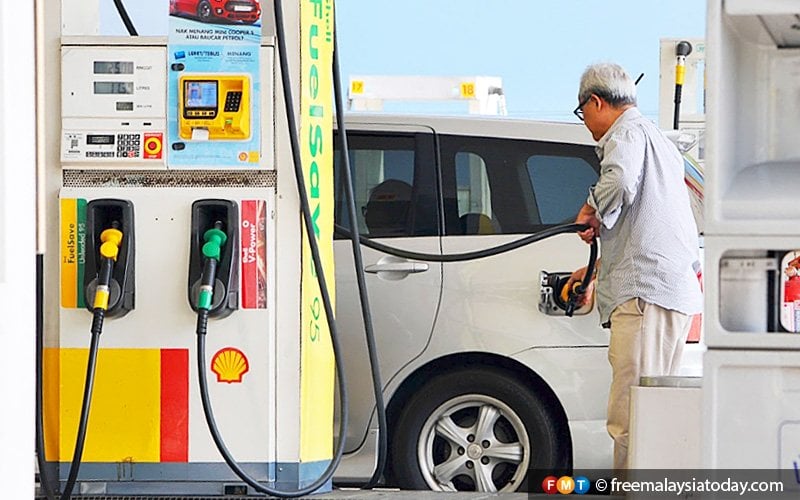
KUALA LUMPUR: The government may have to fork out RM28 billion in fuel subsidies this year if the price of crude oil continues to remain above US$100 per barrel, finance minister Tengku Zafrul Aziz said.
He said RM11 billion was spent on fuel subsidies last year.
Replying to a question by Wong Hon Wai (PH-Bukit Bendera) in the Dewan Rakyat today, Tengku Zafrul said the conflict in Ukraine had caused the price of crude oil to rise to US$100 per barrel, the highest since 2014.
With the price increase, he said, the subsidy rate for petrol, diesel and liquefied petroleum gas was expected to reach RM2.5 billion per month.
“If the price of crude oil remains above US$100 per barrel, the overall subsidy cost for 2022 is expected to reach RM28 billion compared to RM11 billion for 2021.
“Consumers at the moment only pay RM2.05 for RON95 petrol, but the actual cost in March has reached RM3.70 per litre. This means the government has to subsidise the cost difference of RM1.65 per litre.
“Every time we fill up petrol at the price of RM100 for 49 litres, the government pays RM81 because the actual price is RM181 for 40 litres of RON95. This means the government’s subsidy is as much as 45% of the total price,” he said.
Meanwhile, for diesel, consumers only paid RM2.15 per litre, while the actual cost had exceeded RM4 per litre.
He said the huge gap between the retail price and the market price would cause a much higher subsidy leakage risk caused by the smuggling of petroleum products.
Tengku Zafrul said the option of borrowing money to cover operating expenditure such as subsidy costs was not available to the government.
“Therefore, the increase in subsidy costs will have to be balanced with a revenue increase and expenditure savings,” he said.
He said the current subsidy programme used the same pricing for the rich and the poor. He said high-income individuals would enjoy more subsidies based on higher consumption rates compared to those earning less.
The government would, therefore, be reviewing fuel subsidies to ensure they were targeted towards vulnerable groups.
“Targeted subsidies are expected to optimise the government’s financial resources while expected savings can be redistributed for more effective government programmes to benefit the people,” he said.
Tengku Zafrul said the government was aware that the price increase of petroleum products would affect the transport sector and the economy.
“Therefore, there is a need for the government to review the subsidies so that they will be targeted towards vulnerable sections of society and not be affected by inflation,” he said. - FMT



No comments:
Post a Comment
Note: Only a member of this blog may post a comment.